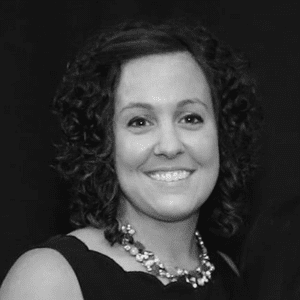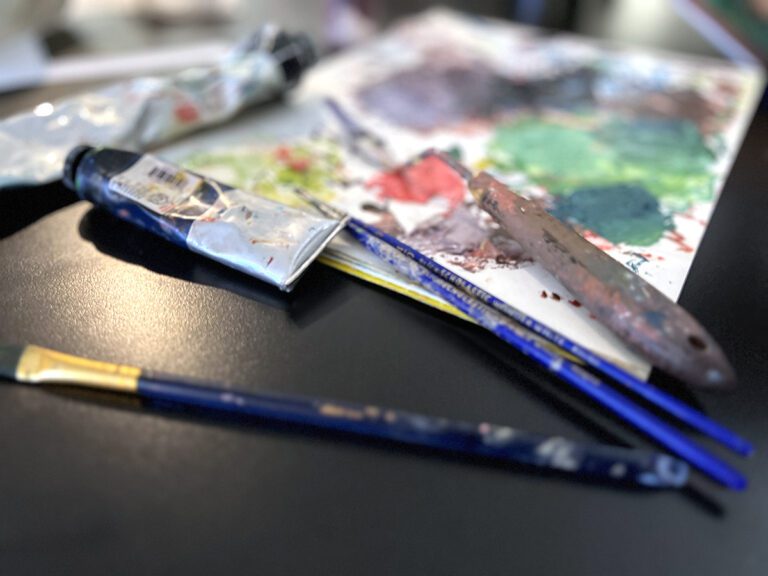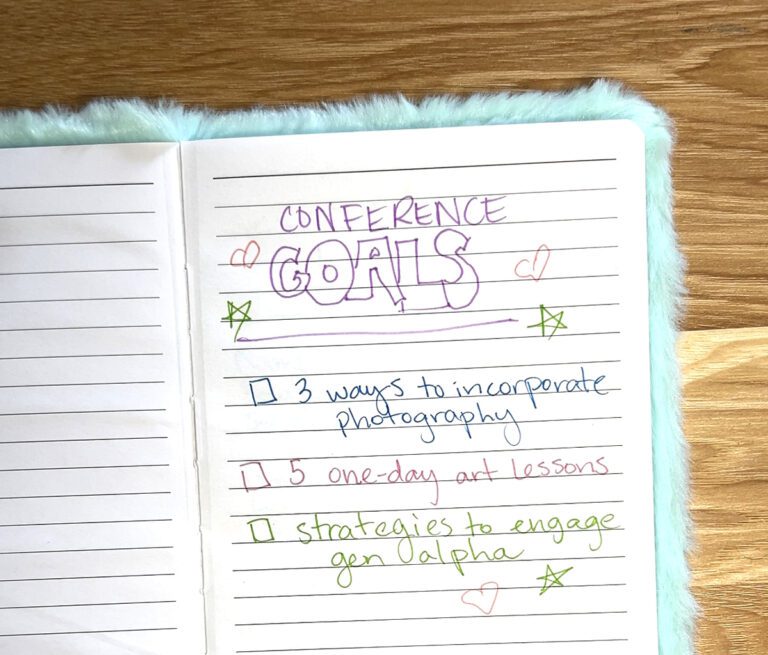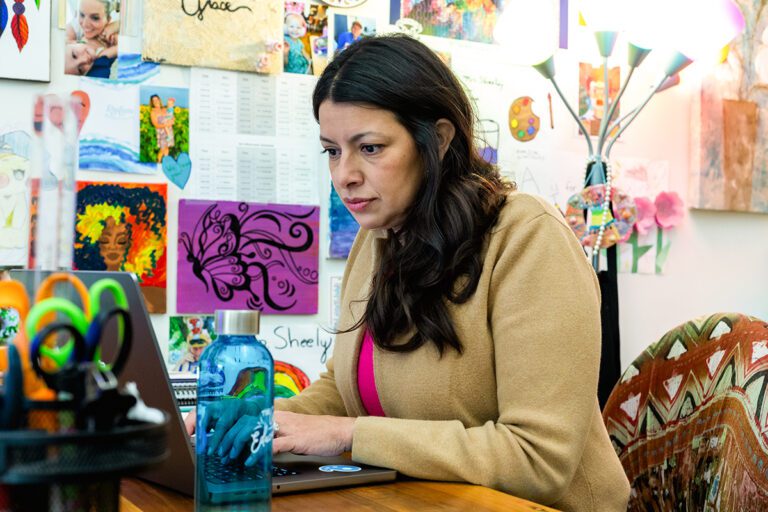As Art Educators, we all agree that professional development can leave us unfulfilled. Even when the activity is art centered, sometimes art demonstrations and simple make-and-take sessions don’t connect to our teaching the way we would like. I have complied a list of some quality professional development activities for Art Educators.
Whether you plan your own PD, have an art coordinator who plans your PD for you, or pine for the day you can plan your own PD, this list can help you at any stage of the PD blahs. Perhaps, it can even inspire you to propose something your administrator has never seen before. You don’t know until you ask!
This list is based on current research, activities I’ve successfully carried out with my art department, and suggestions I’ve heard from teachers around the country.
15 Ideas to take your PD from Drab to Fab!
1. Book Study
Buy a book about art education or general education that interests you. Read the book, discuss the book, and apply some of the concepts to your classroom.

2. Lesson Sharing
Sometimes the best ideas are right within your own department, district or county. Take some time to share the lessons you teach and the details, resources, and theories behind the lessons. You may be surprised at what you learn.
3. Assessment Training
Learn about the latest in art assessments. After the research, practice writing assessments based on your own classroom needs and curriculum.
4. Visit Other Schools
Visiting and observing other teachers can be very rewarding for other educators. Whether you go to another district or county, or stay within your own, I highly suggest scheduling an observation, and finding a way to make it happen. Even in a few short hours, you can learn so much.
5. Museum Visit
Schedule a visit to a local art center, museum, sculpture park or even historical center. Get some 1:1 personal time with a docent. You may be amazed what you can learn about strategies for talking with kids about art from professionals who do it every day.
6. Strengthen your PLN
Do you have a place online you can network with other art educators? Search your favorite social media sites for groups that interest you.
7. Make Connections
Use your PD to find out what is being taught in other disciplines around your school. Spend some time connecting or modify lessons you teach to make those all important connections.
8. Dream School
Find a school you think has it going on. Make a road trip to visit that school. Talk to the teachers, students, and curriculum coordinator to find out what makes the school tick. Too far away? Schedule a video chat or send an email!
9. Hire a Consultant
Ask if there are any funds available to hire an expert. You never know until you ask!
10. Go to a Conference
Plan your PD around the next conference in your state. Conferences can be a very motivating experience. You may come back refreshed and recharged with new ideas. Because conferences are date specific you may need to plan ahead for this and may benefit from being proactive.
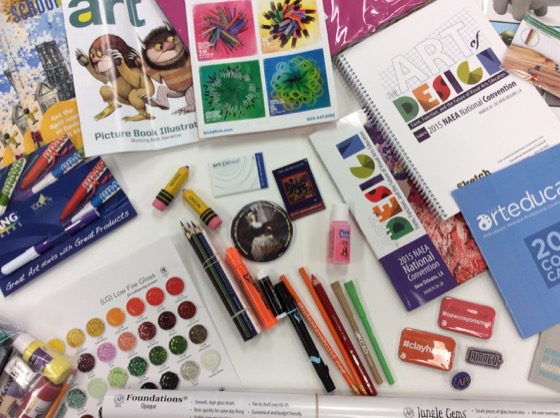
11. Tech Training
What new technology would you like to experiment with? Find someone in your area who has the newest interactive whiteboard, tablet or document camera and have them show you how it works and let you try it out. This new learning could jumpstart your next technology grant application.
12. Write an Article
Spend some time yourself or with colleagues researching and writing an article for an art education publication. You may be nationally recognized for your group effort and learn something meaningful along the way.
13. Connect with Community
Connect with your community. How can you learn about and connect with your community to let them know the arts are alive and well within your school and city? What can you do to make these connections stronger?
14. Pick a Theme
Choosing a yearly theme for PD works great for our department. Everyone is laser-focused on the topic, and the learning doesn’t seem so disconnected. If you have the option, choose a theme, plan it out, and get a great rationale for how this theme might help your teaching and student learning.
15. Reflection
Take time to reflect, blog, journal, or talk with colleagues about your learning and how you might apply it. Reflective experiences are so important and we don’t give enough time to do this. PD can be the perfect opportunity for us to reflect on our teaching practices if we give it a chance, and more importantly, are GIVEN the chance to reflect.
What are some of the best professional development opportunities you have participated in?
What made them great?
Magazine articles and podcasts are opinions of professional education contributors and do not necessarily represent the position of the Art of Education University (AOEU) or its academic offerings. Contributors use terms in the way they are most often talked about in the scope of their educational experiences.
